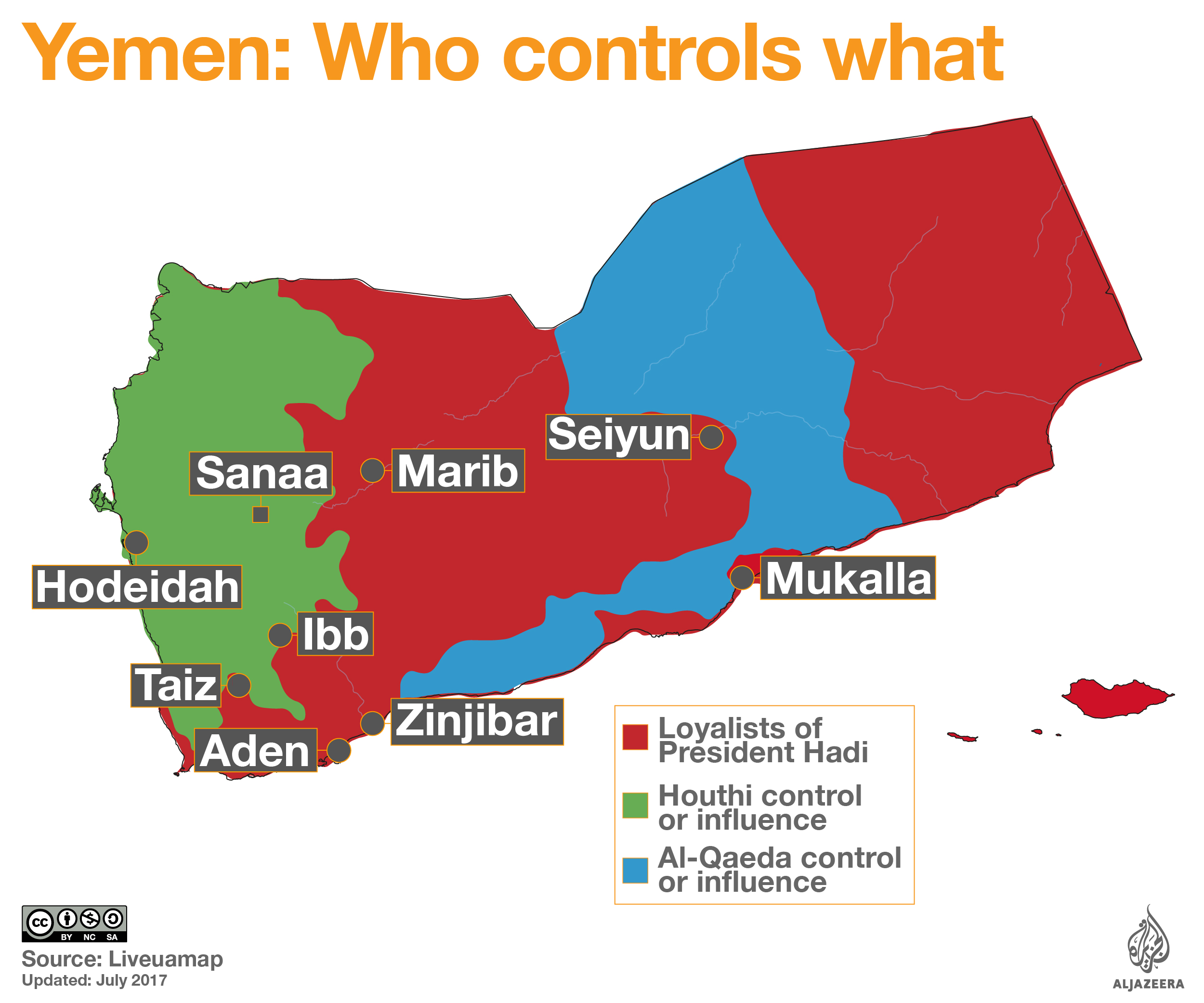Saudi coalition kills hundreds of Yemenis in 2017: UN
Coalition conducting operations ‘heedless of their impact on civilians’, with at least 933 killed in 13-month period.

The United Nations has accused a Saudi-led coalition fighting in Yemen of failing “to mitigate the impact of its operations on civilians”, and said the 29-month-war had caused the spread of al-Qaeda in the country.
In a report released on Tuesday, the UN’s Human Rights Council (HRC) said that between July 2016 and August 2017, coalition air attacks continued to be the leading cause of civilian casualties, killing at least 933 civilians and injuring 1,423.
“In addition to markets, residential areas, and public and private infrastructure, the past year witnessed notable air strikes against funeral gatherings and small civilian boats,” the report said.
|
|
It said that “civilians may have been directly targeted”, with the coalition’s operations “conducted heedless of their impact on civilians without regard to the principles of distinction, proportionality and precautions in attack.
“In some cases, information suggested that no actions were taken to mitigate the impact of operations on civilians”.
Houthi shelling killed at least 178 civilians and wounded 420, with Taiz, Yemen’s second largest city, forced to suffer “unrelenting” bombardment, the HRC report said.
“I appeal to all the parties to the conflict, those supporting them and those with influence over them to have mercy on the people of Yemen,” Zeid Ra’ad Al Hussein, the UN high commissioner for human rights, said.
Armed groups had exploited a power vacuum to expand their presence beyond the south and southeast of the country, the report said, with al-Qaeda now “operational” in Taiz city.

Taiz has been besieged by Houthi fighters for more than more than two and half years with al-Qaeda fighters reportedly fighting “shoulder to shoulder” with pro-government forces.
“I call on all parties to the conflict to cease hostilities and to work robustly towards a negotiated and durable solution, so that the people of Yemen may finally know peace,” Al Hussein said.
Security has deteriorated in Yemen after Houthi fighters left their stronghold of Saada in the country’s northwest and swept into Sanaa in September 2014.
Yemen: ‘World’s worst cholera outbreak’ mapped
The fighters formed a fragile alliance with troops loyal to former president Ali Abdullah Saleh, forcing the government of President Abd-Rabbu Mansour Hadi to flee into exile.
The Saudi-led coalition launched air attacks against the Iran-aligned Houthis in March 2015 but since then, have largely failed to pave the way for the recapture of Sanaa.
The UN’s Office for the Coordination of Humanitarian Affairs estimates more than 10,000 civilians have been killed and 47,800 wounded since the Saudi intervention.
The conflict has displaced three million Yemenis, forced 200,000 people to seek refuge abroad and about 17 million of Yemen’s 26 million people lack sufficient food.
|
|